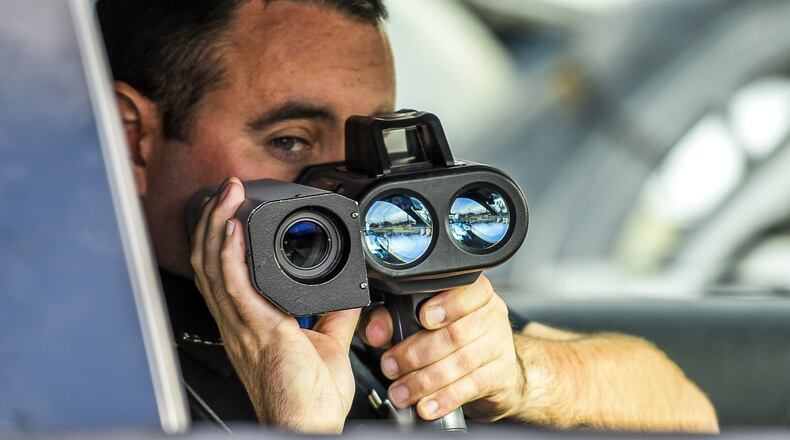“Injunctive relief will allow New Miami to serve the public interest by continuing its Photo Enforcement Program that reduces costs, potential of physical injury and disruption to the residents of New Miami caused by motor vehicle accidents and promotes compliance with traffic laws,” Adams wrote.
The cities of Dayton and Toledo recently won injunctions temporarily blocking the new state speed catcher laws for those jurisdictions. New Miami paused its speed camera program after the new laws took effect and would also need an injunction to resume operating their cameras.
House Rep. Bill Seitz, R-Cincinnati, one of the primary architects of the speed camera laws, told the Journal-News these lower court findings do not worry him. He said this will ultimately end up before the Ohio Supreme Court and the high court will follow a line a federal cases where financial means were used to get states to adhere to federal objectives — like when the drinking age was increased to 21, lowering the DUI level to .08 and many other instances.
“They will be guided by these federal Supreme Court decisions on those cases in which the federal government has used the power of its purse to encourage adherence by local units of government to federal objectives,” he said adding “I do not care what some local common pleas court judge says on a TRO.”
When the new state transportation bill passed, it reduced the amount of state financial aid local jurisdictions receive by the amount they collect annually in speed camera ticket revenue and added a new wrinkle, mandating the courts handle speed camera citations as civil proceedings that include court fees and costs.
The village has collected $1.76 million under the new program that started in 2016 but only received $52,448 in local government funds from the state last year.
The law took effect in July, and the village paused its program. The bigger financial issue is the court costs.
Hamilton Municipal Court Clerk Michelle Deaton said the civil filing fee is $85, and there could be other costs. The New Miami speeding tickets were $95.
However, the village only keeps 64 percent of the fine collections, so for the 2,888 tickets paid this year through June — if the law had been in effect all that time — the village would have had to pay the court at least $245,480 and only collected $175,635.
Under the new law, the village would have to pay the court fees up front, and they are non-refundable regardless of the outcome of the case. Adams in his motion for a temporary restraining order and injunction said this provision of the new law in particular violates the village’s right to home rule on a number of fronts.
The Lucas County Common Pleas Court judge who approved a preliminary injunction for the city of Toledo agreed this part of the new law would be blocked in that city. Adams attached the decision for Howard to peruse.
“In light of the evidence that this provision will be quite costly to the city, the court similarly finds that this code section has an improper limiting effect of coercing the city into discontinuing its traffic camera program,” the judge wrote. “The state has not shown an overriding state interest for such a limitation.”
About the Author
